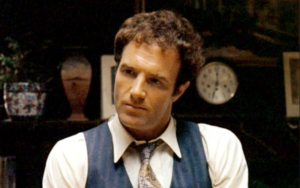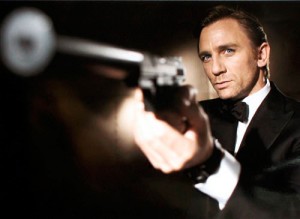CTV NEWSCHANNEL: THE LIFE, CAREER AND LEGACY OF JAMES CAAN.
 Richard joins CTV NewsChannel anchor Jennifer Burke to talk about the life and legacy of actor James Caan, who passed away yesterday at age 82.
Richard joins CTV NewsChannel anchor Jennifer Burke to talk about the life and legacy of actor James Caan, who passed away yesterday at age 82.
Watch the whole thing HERE!
 Richard joins CTV NewsChannel anchor Jennifer Burke to talk about the life and legacy of actor James Caan, who passed away yesterday at age 82.
Richard joins CTV NewsChannel anchor Jennifer Burke to talk about the life and legacy of actor James Caan, who passed away yesterday at age 82.
Watch the whole thing HERE!
 Humphrey Bogart used to say you weren’t a star until they could spell your name in Karachi and while there’s nothing tricky about the order of the letters in Daniel Craig’s name I’m not sure if people in Karachi spell his name D-a-n-i-e-l or J-a-m-e-s-B-o-n-d. That’s my long winded way of asking, “Is Craig a movie star or are his movies the stars?”
Humphrey Bogart used to say you weren’t a star until they could spell your name in Karachi and while there’s nothing tricky about the order of the letters in Daniel Craig’s name I’m not sure if people in Karachi spell his name D-a-n-i-e-l or J-a-m-e-s-B-o-n-d. That’s my long winded way of asking, “Is Craig a movie star or are his movies the stars?”
He has all the attributes of a movie star. He’s good looking, the camera loves him and Del Monte Foods once launched an ice pop molded in his image but I’m not sure if people say, “Man, I gotta see the new Daniel Craig movie,” as much as they pronounce, “Man, I gotta see Insert Iconic Title Here.”
But, you say, millions of people flock to see some of his movies. That must mean he’s a movie star, right? Well, no, not exactly.
In recent years Craig’s biggest successes have been in films that almost sell themselves. He’s a great James Bond, perhaps the most interesting of the Connery replacements, but he can’t rightly lay claim to the Bond box offices grosses. Who can? Bond, James Bond. That’s who. It’s a recognizable brand no matter who is on the poster.
It is a fact that Craig can hold the lead in a movie. He’s a powerful presence with acting chops to spare—he’s earned good reviews for serious movies like Love is the Devil, Elizabeth, The Mother and Enduring Love and praise for his work in bigger Hollywood pictures—but being a good actor is just one element of being a movie star.
Box office grosses are important to maintaining status as a movie star, but I’m talking about something more ephemeral, something that has nothing to do with dollars and cents but lots to do with sense and sensibility.
A movie star should be bigger than the movie or character they are playing. Years ago people went to see John Wayne movies regardless of title or content. Wayne was a movie star, an actor who transcended his characters, filling the screen with his, well… Wayness.
There aren’t that many performers these days who can create that kind of excitement on the strength of their name alone. Tom Cruise used to inspire lineups. No more. Julia Roberts, ditto. Jim Carrey, not so much. They are big stars, but their time as movie stars, quote, unquote, is over. Will Smith and Johnny Depp are movie stars (although I wish Johnny would make Captain Jack walk the plank and move on). Their movies are events, not simply because of premise, but because they came to work with their indefinable movie star-ness in hand.
Craig has four movies set for release 2011, which is a pretty movie star thing to do, but none of them could be described as “a Daniel Craig movie.”
This weekend Cowboys & Aliens looks primed to do well on the strength of a catchy trailer and cool premise. December’s double hit of The Adventures of Tintin and The Girl with the Dragon Tattoo are both franchises waiting to happen and Dream House, a psychological drama directed by Jim Sheridan which has been sitting on the shelf for over a year, has zero buzz.
It’s that last movie, set for release in September, which proves my point. His other movie releases this year are hotly anticipated high profile pictures based on popular preexisting material—a graphic novel, a beloved comic series and a cultural phenomenon. Dream House stands alone as the film which will rise or fall based on Craig’s star power, and yet it has almost no public awareness.
John Wayne never released a film that had zero public awareness, and if Craig was an honest-to-goodness movie star, he wouldn’t either.
There was a time when Westerns ruled the movie theatres. John Wayne, Randolph Scott and Joel McCrea were all larger than life cowboy stars and the sight of a wagon train coming over a mountain pass was pretty much a guarantee of a healthy box office. Then times changed. The western went urban as big city cop dramas squeezed cowboy stories off the big screen. This season, however, after an absence of several years two new westerns are slated to gauge audience interest in good old fashioned horse opera.
The first of the two, 3:10 to Yuma, is a star driven remake of a 1957 Glenn Ford oater (look for the awkwardly titled The Assassination of Jesse James by the Coward Robert Ford in late September). The original is a classic of suspense, a tension filled battle of wills between two men, one bad to the bone, the other righteous but desperate. I’m happy to say that the new version takes only slight liberties with the story such as upping the violence and even changing the ending, but maintains the spiritual core of the first.
Christian Bale, hot off his star turn in Rescue Dawn, is Arizona rancher Dan Evans. He’s a Civil War vet, but an injury sustained in battle and bad luck has made it nearly impossible for him to make a living from his land. He’s in debt and about to have his land repossessed by a greedy landowner not above using violence and intimidation to get Dan and his family off their land. Dan feels like a failure, and worse yet, his kids and wife seem to agree in that assessment.
The answer to Dan’s problems, both financial and self esteem wise comes in a strange package. Ben Wade is the outlaw’s outlaw. He’s a gunfighter and gang leader responsible for a trail of lawlessness and bloodshed. When he is separated from his mob and captured, Dan, who was once the best shot in his platoon sees an opportunity to make some money and rehabilitate his reputation with his family. For $200 Dan joins the posse of lawmen charged with the dangerous job of escorting Wade to the 3:10 to Yuma prison train.
The passage is dangerous, made even more so by Wade’s gang, led by the psychotically loyal henchman Charlie Prince (Ben Foster). These guys delight in ultra-violence and are desperate to have their leader back. The journey, peppered with violence, vengeance and tension isn’t merely about the physical, however. This is a spiritual journey for both men, a chance for each of them to prove what they are made of; to dig deep and reveal their true natures.
Director James Mangold (Walk the Line) has a lot on his plate with this remake. The original is a well loved classic (although few people under 40 have probably seen it) with a riveting central performance by Glenn Ford in a rare bad guy role. To his credit (and the benefit of the movie) Mangold cast the major characters with actors known for making roles their own, and this is one of the strengths of the film.
Bale brings just the right amount of vulnerability to Evans, while Crowe digs in to create a bad guy, rotten to the core, who begins to doubt his evil nature. It’s the only way of life he knows, but given a glimpse of decency he doesn’t exactly change his ways, as much as simply acknowledge that under his tough exterior there is a beating heart. It’s like he says after brutally dispatching a man who insulted his mother. “Even bad men love their mamas…”
Also notable are Peter Fonda as an old time Pinkerton cop and Hollywood’s psycho du jour Ben Foster, who takes the standard role of the rancorous goon and injects it with a fierceness that makes him standout in a movie of great performances.
Like Clint Eastwood’s The Unforgiven, 3:10 to Yuma is a great Western cow opera about men looking inside themselves to discover the true essence of their lives. These two polar opposite men find a meeting place in the existential grey area between redemption and damnation. 3:10 to Yuma is a handsome remake and a smart enough movie to allow for a healthy dollop of existential angst amid the horse and gun play. If all the new westerns were all this good, maybe they will make a comeback.